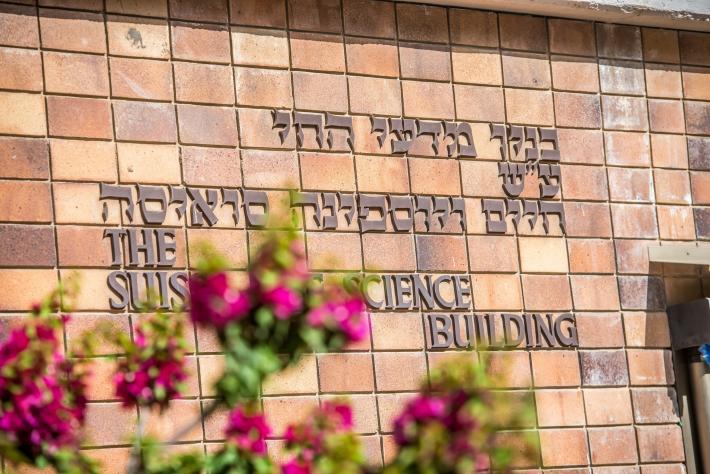About the Faculty
Life Sciences in the 21st century
The Life Sciences fulfill a major role in the development of humanity in the 21st century. The challenges faced by humanity are becoming increasingly tougher: how to preserve ecological systems that are in danger of extinction? How to supply food and energy to the immense population of our planet? How to afford health and quality of life for those suffering from severe diseases and genetic defects? In parallel, scientists are developing unique research instruments that are unimaginably sophisticated, in order to cope with these threatening problems, which in the past were thought to be hopeless.

This is a battlefield that is fitting for young and enthusiastic people, who will acquire comprehensive and in-depth knowledge in the different and exciting branches of biology: biochemistry, biophysics, computational biology, molecular genetics, ecology, plant sciences, microbiology, immunology, neurobiology, biotechnology, nanotechnology, etc. They will be the scientists who will cope with tomorrow's challenges, will expand the boundaries of scientific knowledge, and may even redefine the essence of life for future generations.
Our mission
The Mina and Everard Goodman Faculty of Life Sciences at Bar-Ilan University strives to impart biological knowledge and scientific education based on modern research. The scientific education to which we strive is sensitive to public needs, and to social, economic and environmental dimensions of biological research. It is also accompanied by a Jewish, halachic and ethical dimension. In addition to the impartation of knowledge, we strive to arouse the curiosity of the students and to cultivate their intellectual and cultural growth, out of sincerity and humility. We try to advance the technical abilities of the students in laboratory work and field research, their ability to critically analyze scientific information, their problem solving ability, and their awareness for preservation of the environment.
The Faculty
The Faculty's staff includes more than 40 scientists-researchers, who lecture in courses in their field of expertise. Each of them heads an active and lively research group, which includes colleagues, technicians, and graduate students.
In 2009 there are 893 undergraduate students at the Faculty. There are also 210 masters' students, 167 doctoral students and 21 post-doctoral students who actively participate in a diversity of research programs at the Faculty. These stages in their training prepare them for a scientific career in the academy, the biotechnological industry, medical laboratories and the public service. Faculty graduates can be found in key positions in all of these fields. The Faculty is undergoing a process of growth and development, and comprises a "center for excellence" for research and teaching. Three young and excelling new staff members are accepted to the Faculty every year, bringing with them the latest exciting innovations of the profession, the result of their training in the best research centers around the world.
The studied fields
The various fields that are taught at the Faculty of Life Sciences are divided into several major research categories: cellular and developmental biology, ecology and plant sciences, immunology and cancer research, computational and structural biology, microbiology and virology, and neurobiology. Basic understanding of various processes is emphasized in each field, as well as implications for human health and welfare. During his/her studies the student will be exposed to a great diversity of topics in the compulsory and elective courses. Within the framework of graduate studies the student will acquire practical experience in the various fields of research in one of the Faculty's research laboratories.



